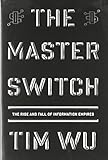The restriction from connecting your own devices to the Bell System forestalled the production, sale, and invention of devices such as the answering machine (Bell invented one in 1930, along with magnetic storage - but scrapped the project because they thought it would cause people to use the phone less), fax machine, and so on and so forth. The 1956 ruling against Bell in favor of Hush-A-Phone effectively allowed the invention, sale, and use of foreign attachments to the Bell System.
The restriction of doing what you want with your own console/computer is essentially the same damn thing. We've already fought this war against monopolists in technology; it's sad that we have to do it all over again.
Further reading:
Hush-A-Phone vs. United States (Hush-A-Phone appeal to an FCC ruling): http://en.wikipedia.org/wiki/Hush-A-Phone_v._United_States
The Master Switch (Tim Wu): http://www.amazon.com/Master-Switch-Information-Empires-Borz...
http://www.amazon.com/Master-Switch-Information-Empires-Borz...
He does a great job explaining the interaction of technology, industry titans, markets, and government and how they've influenced media over the past century (and right through to the modern net neutrality debate.)


You could only see those sorts of hidden costs after the fact, when waves of innovation appeared quickly out of nowhere. Held back for decades, a half-century of innovation appeared in little more than a decade.
How do you calculate the cost of that? In Tim Wu's book titled The Master Switch http://www.amazon.com/Master-Switch-Information-Empires-Borz... he highlighted that AT&T example & asked a person to imagine some company deciding to hold back email for 10 years & trying to guess the incalculable astronomical costs.
Now, to be fair, I wouldn't say Google is anywhere near as anti-competitive as AT&T has been historically, but they have certainly grown more adversarial over the past 3 or 4 years. Compete.com shows over 5% of Google's downstream traffic going to Youtube & that traffic flow was up 18% in a single month...after lots of other user generated content sites got whacked. Think Youtube is different & better than the others? In some ways it may be, but if you read the comments below the video they are about as low quality as they come anywhere across the web. Something like 30% of Youtube pages have "Bieber" in them.
site:youtube.com search on Google = About 621,000,000 results
site:youtube.com bieber search on Google = About 203,000,000 results
The other big issue (at least inside the United States) is the large companies are not hiring that many people domestically...so most of the job grow must come from small businesses.
A lot of the companies that were wiped off the search results were not "evil SEO spammers" of some sort, but rather small ecommerce shops & such. The drastic shifts in business do increase risks (perceived & real). How much innovation & economic prosperity that destroys isn't something that is easy to calculate.
I am doing better now than I was before Panda, however a lot of people who are not SEO experts who run small businesses just lost their business. As search keeps raising the bar on the number of steps required to be good enough to be in the game a lot of small businesses get torched, because who has time to know their craft & jump through 30 hoops for Google? Of course that is no big deal to the SEO pro who focuses on SEO...but to the small business who has to do everything from accounting to taking out the trash such a large shift in traffic & increase in complexity in search is devastating.
And, if we go back to why the update was even needed, it was primarily driven by Google funding MFA content farms/factories like Demand Media's eHow & "answer" scrapers like Ask.com.
I can show you one HUGE example of the search results looking nastier...check out some of Google's product search integration in the search results.
I just searched Google for "necklaces" and the products they showed cost $60, $8, $19, & $5. They are not widely representative of the diversity of the category, look ugly, and are generally of far lower utility than the affiliate sites & smaller specialty ecommerce sites that got torched & are now considered spam by "the algorithm".
There are also cases where some original content creators had their sites whacked, whereas the file hosting warez sites violating their copyright outrank the original source. Search can't create a much more damaging ecosystem then penalizing the creative sources & directly funding their parasites.
A parting thought here...we are generally the most unique where we are the most refined & we are generally the most alike in how we are vulgar.
As the web moves from specialty shops to big box stores (aka: big brands) a lot of that diversity & beauty becomes less accessible. Google is/was one of the few counter-weights to the big business walled garden interests online. As they place more weight on branding, they ultimately act much more like that they were trying to differentiate themselves from.
What is the long-term cost of less diversity & less economic specialization? That is how one needs to frame the above "what actual search results became worse for users as a result of these changes" question.
We are in the middle of a trend rather than at the end of it, so the answer is currently unknown.